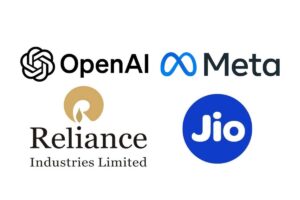OpenAI Executive Discusses the Company’s Current Major Challenge

The Challenges and Opportunities in AI Adoption
Current Landscape of AI Demand
OpenAI’s managing director of international strategy, Oliver Jay, recently outlined the organization’s key challenges and the increasing market demand for artificial intelligence during an event at CNBC’s CONVERGE LIVE. He emphasized that while there is significant enthusiasm for AI technologies like ChatGPT, the real challenge lies in transforming this excitement into practical, business-ready solutions. Unlike many companies, OpenAI is not facing a lack of interest; instead, the focus is on developing AI fluency within organizations to convert theoretical concepts into viable products.
Bridging the AI Fluency Gap
Jay emphasizes that the transition from potential to practical application of AI is complex. He notes that “working with large language models is a new paradigm” that requires the establishment of guardrails to ensure safe and effective implementation. This is crucial for managing safety and moderation issues that arise with the use of AI technologies.
For many companies, understanding how to utilize AI effectively remains a challenge. The gap in AI fluency means that organizations may struggle to know how to harness these advanced technologies for tangible business benefits. Jay points out that a stronger focus on education and training is necessary to bridge this knowledge gap.
Rising Popularity of ChatGPT
At a recent event in Singapore, Jay highlighted the exponential increase in usage of ChatGPT, noting that the city has the highest per-capita adoption of the chatbot globally. OpenAI’s plans to establish an office in Singapore signal their commitment to harnessing this interest in the region.
The success of ChatGPT illustrates the widespread appetite for AI-driven solutions across various sectors, including consumer services, education, and development. With over 400 million weekly active users reported, the platform is indicative of a broader trend where AI tools are rapidly embraced across different demographics and industries.
Unique Opportunities for Asian Companies
Jay believes that artificial intelligence presents unique opportunities, particularly for companies in Asia. He notes that for the first time, Asian firms could potentially take a leading role in global technology innovation. Historically, advancements in technology have often originated in places like Silicon Valley. However, the current environment allows for Asian companies to step into pivotal roles in shaping AI’s future.
Unprecedented and Universal Adoption
According to Jay, the current wave of AI adoption differs significantly from past technological shifts, such as software-as-a-service (SaaS) or cloud computing, where there were clear early and late adopters. Instead, he describes AI’s growth as a “rollercoaster,” where businesses and consumers alike are engaging with these new tools simultaneously and widely.
Transforming Businesses with AI
Jay states that AI is not an abstract concept but is ready for application in real-world scenarios. Many companies are already undergoing transformations thanks to AI solutions. This practical readiness means that businesses can leverage these technologies to enhance their efficiency, innovate product offerings, and improve customer interactions.
ChatGPT, developed by OpenAI, utilizes deep learning to create human-like responses and is backed by significant investment, particularly from stakeholders such as Microsoft. As companies explore the capabilities of AI, the focus remains on leveraging these tools to address specific needs and improve operational effectiveness.
By navigating the complexities of AI integration and capitalizing on the enthusiasm present in the market, organizations stand to reap substantial benefits while contributing to the evolution of technology on a global scale.





